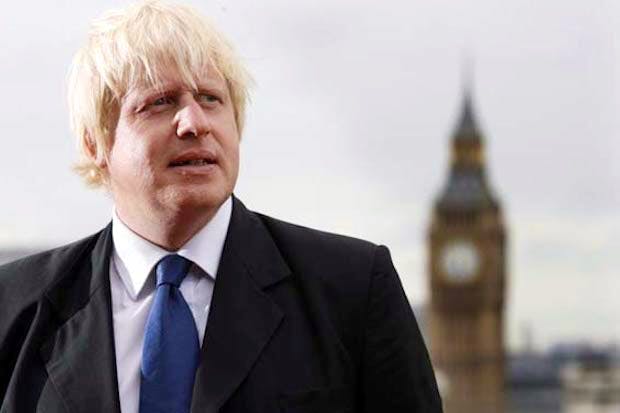News comes this morning, after much speculation, of an organised attempt to create a new British political party, called United for Change, funded by LoveFilm entrepreneur Simon Franks. It doesn’t have any MPs yet, apparently, and may not have any when it launches this autumn.
Is there a hole in the market for a new political party? Yes, but not a party of what the Metropolitan Left likes to call the ‘centre’. The gaping hole, as has become clear from the saga of Boris and burqas, is for a non-woke conservative party – one which unashamedly espouses conservative values without hoovering up every metropolitan liberal cause which passes beneath its nose.
Senior Conservatives have inadvertently been making the case for such a party over the past 48 hours. First Brandon Lewis, followed by Theresa May, Eric Pickles and Sayeeda Warsi have eagerly piled in to condemn Boris’ comments that women who wear a full-face veil look like letter boxes. I know how the fuss will be going down in most ordinary households – i.e. those without a political activist living in them. It will be coming across as an utterly ridiculous, manufactured row. To most people it is self-evident that anyone who dresses up in an outfit with a small slit for the eyes resembles a letter box. The substantive content of Boris’ Daily Telegraph piece was that he doesn’t believe the burqa, niqab or any other kind of religious dress should be subject to the kind of illiberal ban which has been introduced by France, Denmark and Austria, and which has been seriously considered in several other European countries. This, you might think, would put Boris on the leftwards flank of public opinion on this issue – a YouGov poll from two years ago suggested that 57 per cent of the UK population support a Danish-style ban.
That Owen Jones and his type try to make out instead that Boris is some kind of hard-right nutter says much about how far they are from the mainstream British public. But what is far more remarkable in this case is the number of Conservatives piling in to condemn Boris. There may be an element of Brexit in this – they are desperate to try to discredit Boris in order to avoid him becoming Tory leader. But then again, it fits an increasingly clear pattern of behaviour among many Tories with political ambitions, who are falling over themselves to conform to the strictures of the woke Left. They have allowed their confidence to be undermined by those who seek to use offence as a political tool, and find themselves leaning leftwards as a result. The pressure on Boris this week is reminiscent of the Lord Freud affair in 2014, when the former welfare minister was attacked for raising a genuine issue: that the inflexibility of the national minimum wage is making it harder for firms to create work opportunities for some disabled people who cannot do work of commercial value. He grovelled, but still it was not enough: Labour went on demanding his resignation, and his shortly afterwards retired.
David Cameron made a habit of political grovelling: over Bloody Sunday, the Amritsar Massacre, Alan Turing and so on. But Theresa May has gone much further in gestures towards the Left – preventing police from making full use of stop and search, forcing companies to publish data on gender pay, trying to reduce prison sentences for female prisoners, proposing to allow anyone to self-identify their gender, talking about forcing abortion law on Northern Ireland etc. Absurdly, a Conservative government has set the BBC a target that 10 per cent of its senior staff roles should be filled by LGBT people (who according to the ONS make up 1.5 per cent of the population).
The Conservatives have not curried favour on the Left as a result of this sort of stuff – the Owen Jonesite Left still make them out to be a bunch of racist, homophobic fascists, as it always will do. What the Tories have done on the other hand is expose a huge flank on their socially-conservative wing which is crying out for representation – the ‘gammon’ vote, to use the term coined on the Left (apparently without irony, given how they jump on any language deemed to be offensive to their own favoured minorities). Ukip used to fulfil this role during the Cameron years, until it imploded. While many saw Ukip as a single issue party, by 2015 there was far more to its appeal than just a policy of EU withdrawal – it was in many ways evolving into a conservative party which crossed the classes, in contrast to Cameron’s posh, metropolitan liberal party. Ukip might be partially reviving but it may be too tainted to get anywhere close to the 17 per cent of the vote it achieved in 2015.
Thus there is a big gap there for a new party if anyone wants to take up the challenge. And no, Boris would not be the ideal man to lead it. On burqas as on many things, I would say, he is far too liberal.







Comments